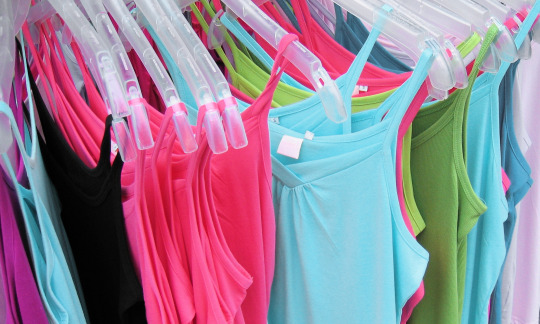After discovering more about what makes clothes ethical I was interested in how my two favourite high street stores (Fatface and White Stuff) fair in the ethical stakes. I sent both of them emails asking:
1. Would you consider yourself an ‘ethical’ company?
2. Where are the majority of your clothes made?
3. Do you use organic cotton?
Both companies replied pretty quickly.
Fatface, which scores 85/100 on the Good Shopping Guide, answered that they follow the Ethical Trading Initiative’s base code, are members of Accord and are continuously driving change in their supply chain in a ‘practical and specific way on the ground with their supply partners’ (I’m not entirely sure what this means!). They said that 42% of their clothes are made in India and they don’t use organic cotton at the moment.

White Stuff, scores 67/100 on the Good Shopping Guide, replied that they are active members of the Ethical Trading Initiative and as members commit to conducting their business in the following way:
. Demonstrating a clear commitment to ethical trade
· Integrating ethical trade into our core business practices
· Driving year-on-year improvements to working conditions
· Supporting suppliers to improve working conditions
They source the majority of their clothes from China, India, Portugal and Turkey, and regularly visit each factory to check working conditions. They are looking at their cotton sourcing to identify how to be more sustainable in this area, and they said they are passionate that the choices they make are the right ones. They pointed me here for more.
I definitely felt like White Stuff gave me a bit more than the corporate answers and from reading more they do seem to be a company with a conscience. I particularly love that they give their employees two paid days of to volunteer in their communities – more companies should do this!
I’ve learnt that it is pretty difficult to shop ethical on the high-street. No company seems to tick all the boxes but there does seem to be lots of movement towards better working practices. Of course if you want to be completely safe, online options like People Tree and Liv are great sustainable and fair trade companies who come top of all the ethical charts, however I might have to wait for a sale to shop at either of them!
I suppose the main thing I’ve learnt is to choose companies that are moving in the right direction. I will choose sustainable and organic fabrics where possible and take an interest in who is actually making my clothes.
Next week I’ll be tackling my own wardrobe and seeing how I can be more ethical with what I already own.

